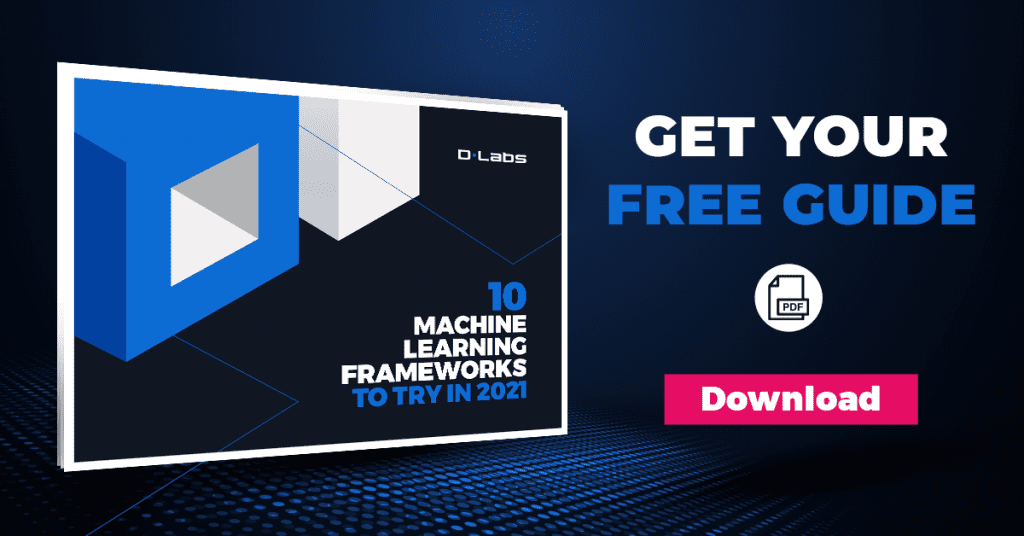It’s no secret that data scientists are in high demand in the IT job market. A Stack Overflow developer survey shows how just 2.07% of software developers worldwide specialize in big data and machine learning. However, if you want to be a standout data scientist, you need to expand your knowledge and stay up to date with the latest market trends — whether you’re just learning the ropes or you’ve been doing it for years.
In this article, we’ll review the five most important big data skills to help you become a successful data scientist.
1. Python (+ related frameworks and libraries)
Python is the current favorite programming language for big data, data science, and machine learning projects. Its simple syntax is relatively easy to learn. But more importantly, it can handle giant data sets.
Python’s biggest advantage is the sheer volume of available frameworks and libraries — each related to data science, big data, machine learning, and artificial intelligence.
Here are the most useful ones for data scientists:
- Pandas – an open-source package designed for easy and quick data reading, manipulation, aggregation, and visualization.
- NumPy – a Python library that facilitates math operations on arrays. Its main use is in arrays vectorization and process storing values of the same datatype.
- SciPy – a library built upon NumPy. It contains useful modules for mathematical routines such as statistics, interpolation, optimization, integration, and linear algebra.
- Matplotlib – a comprehensive Python library that allows the creation of static, animated, and interactive data visualizations.
- Seaborn – an extension of Matplotlib that provides a huge number of visualization patterns for drawing attractive statistical graphics.
2. Other Programming Languages
Python earned its own spot because it has fast become the most frequently used and most useful programming language for data scientists. However, it’s not the only language that data scientists should know.
The more experience you have, the more you should develop your knowledge of other programming languages, but which one should you choose?
Here are the most important:
- R
- JavaScript
- SQL
- Java
- Scala
Before choosing which to learn, read about the pros and cons of each — and where they’re most frequently used — then consider which will work best in your projects.
To get you started, try this article comparing JavaScript and Python for machine learning.
3. Machine Learning
If you look at the requirements of most data scientist roles, machine learning will often be one. There’s no doubting the power of this technology. And it’s sure to grow in popularity in years to come.
It’s certainly a skill you should devote time to learning (particularly as data science becomes increasingly linked to machine learning). And the marriage of these two technologies is resulting in some interesting, groundbreaking insights and applications that will have a significant impact on the wider world.
To stand out from other professionals in the data science field, learn to use machine learning techniques to solve data science problems based on predictions of key organizational outcomes.
Better still, if you can build a skill set including supervised machine learning, neural networks, adversarial learning, reinforcement learning, decision trees, and logistic regression: you will not only have more professional opportunities — you will be in a position to negotiate the highest rates on the market.
4. Probability And Statistics
Data science uses algorithms to extract information and insights, then make informed decisions based on data. Therefore, tasks like estimating, predicting, and inference-making are somewhat inseparable from the job.
As a result, both probability and statistics are integral to data science — and they’ll help you create estimates for data analysis by enabling:
- Exploration and information extraction from data
- An understanding of the relationships between two variables
- The discovery of anomalies in data sets
- The prediction of future trends based on historical data
…and much, much more.
As you can see, probability and statistics play a huge role in data science, so we’re confident it will continue to be worthwhile for you to focus on them in 2021.
5. Business Knowledge
Data science requires more than technical skills. Of course, they are necessary. But when working in the IT industry, you shouldn’t forget about business knowledge — because a critical part of data science is driving business value.
As a data scientist, you need to have a robust knowledge of the domain in which your company operates. And you should know what problems your business wants to solve; only then can you propose new ways to leverage its data.
To do this, you’ll need broad industry knowledge coupled with an understanding of how one particular solution could impact the wider business. In essence, business knowledge will allow you to generate more effective analysis — focused on assessing, sorting, relating, and authenticating data.
6. Prompt Engineering
With the advent of Large Language Models (LLMs), the ability to craft effective prompts becomes vital. A prompt is an input query or instruction that guides the AI to generate a desired output or perform a specific task. The effectiveness of an AI model’s response heavily depends on how well the prompt is constructed.
This skill involves understanding the nuances of language models, the structure of queries, and the context in which AI operates. A well-crafted prompt can significantly enhance the accuracy and relevance of the AI’s response, leading to more efficient problem-solving and data analysis.
Key aspects of prompt engineering include:
Contextual Awareness: Understanding the context in which a query is made, including the specific domain and the desired outcome.
Clarity and Precision: Formulating clear, concise, and unambiguous prompts to avoid misinterpretation by the AI.
Creativity and Experimentation: Employing creative strategies to explore different phrasings and structures to achieve optimal results.
Feedback Loop: Continuously refining prompts based on the AI’s responses and the accuracy of the outcomes.
With AI tools like ChatGPT becoming more prevalent, companies are increasingly seeking these skills through partnerships with AI firms or by cultivating in-house expertise. This shift marks prompt engineering as a critical competency for data scientists who aim to stay ahead in a rapidly evolving AI landscape.
Are you searching for Data Scientist to enhance your team’s capabilities? Contact us to explore your requirements and discover the ideal candidate or assemble the perfect team that aligns with your expectations.





